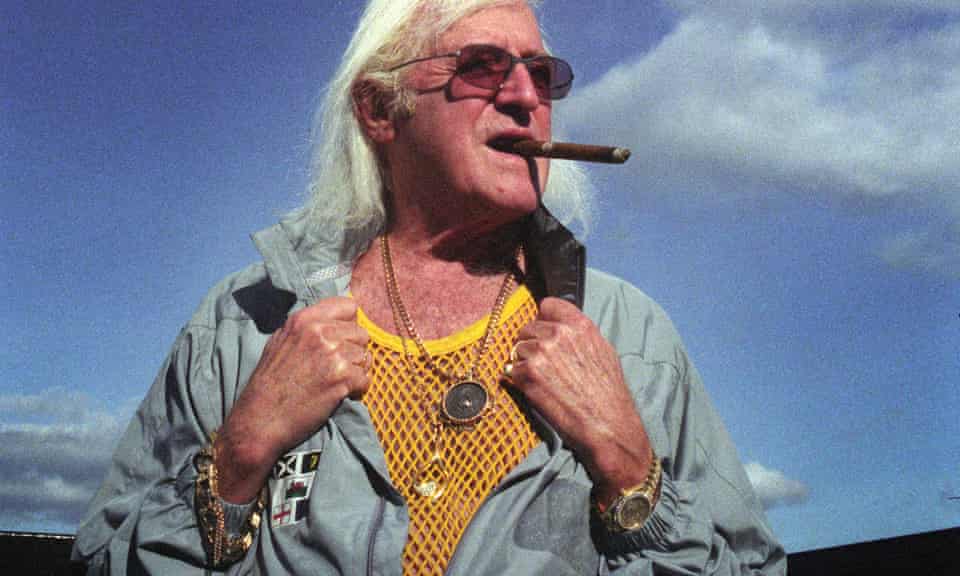 THE SAME QABBALAH IS GUILTY OF FRANCE INSTITUT PASTEUR-US MILITARY ENGINEERED-PATENTED BILL GATES-WHO WUHAN-COVID-19 PLANDEMIC, AND GENOCIDAL BIO-WEAPON JABS, "GLOBAL" WARMING, LABTQRSTUVWXYZ, AND MORE!
THE SAME QABBALAH IS GUILTY OF FRANCE INSTITUT PASTEUR-US MILITARY ENGINEERED-PATENTED BILL GATES-WHO WUHAN-COVID-19 PLANDEMIC, AND GENOCIDAL BIO-WEAPON JABS, "GLOBAL" WARMING, LABTQRSTUVWXYZ, AND MORE!

MONOPOLIST William Henry Gates III
BUT, WHO GIVES A DAMN? THE MASSES, THE CHURCHES, AND RELIGIONS ARE ALL TERRORISED BY BRUTAL MILITARY-POLICE, AND ARE ALL COMPLICIT!
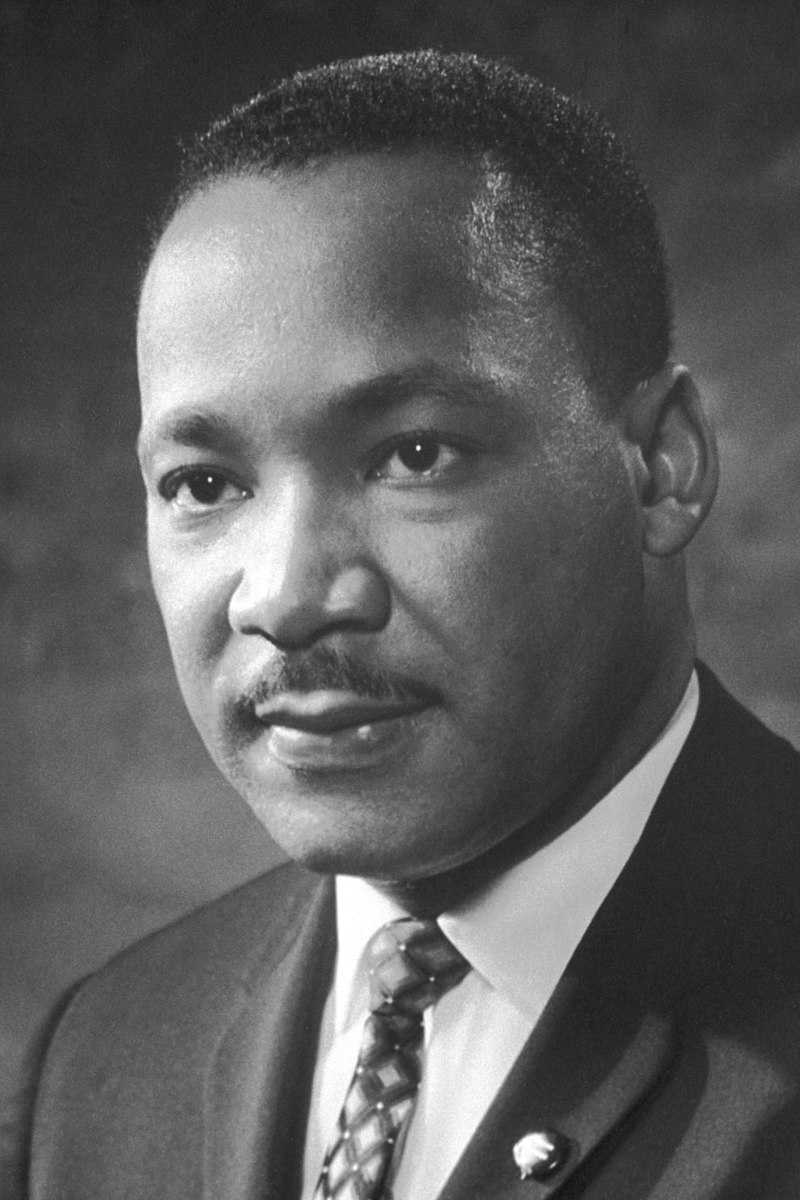
RACIST PERVERTS LIKE ZIONIST COMMUNIST MICHAEL KING JR. (MLK) AND HINDU KARAMCHAND GANDHI ARE NOBELISED, AND WORSHIPPED LIKE GODS!

LONG LIVE ROYAL SIR PRINCE KNIGHT JIMMY SAVILLE!

How two BBC journalists risked their jobs to reveal the truth about Jimmy Savile
Listening
to the women who alleged abuse, and fighting to get their stories
heard, helped change the treatment of victims by the media and the
justice system
On Saturday 29 October 2011, the day the entertainer Jimmy Savile died aged 84, a couple of comments were posted on the Duncroft School page of the networking site Friends Reunited. Duncroft was designated as an “approved school” by the Home Office, and offered residential care for “intelligent but emotionally disturbed girls”. “He died today, RIP no RIH yes rot in hell,” read one message. “Perhaps some closure for the childhoods that were ruined by this animal.” Over the next few days a handful more messages appeared: “You child molester – you were no better than all the other pervs who have been banged up … only your celebrity status saved you.” Someone else wrote how she would never recover from what “JS” did to her.
Across the news bulletins and weekend front pages, Savile was being given a sendoff fitting for someone who had achieved national treasure status. As BBC Radio 1 DJ, and co-presenter of the BBC’s flagship music programme Top of the Pops, Savile became a personality in the pop music scene in the 60s and 70s; his oddness and mannerisms enhanced his celebrity. As the host of the long-running Saturday evening TV show Jim’ll Fix It, he played godfather, granting the wishes to children who wrote in. On the Monday after his death, during the news editors’ 9.15 morning meeting at BBC headquarters in west London, those present were asked to take coverage of Savile’s funeral seriously. The concern was that the news editors might sneer at Savile; they were reminded that, to much of the audience, Savile was a northern hero. He had started out working in the mines, going on to earn a knighthood and befriend royalty through his television shows and charity work.
Meanwhile, George Entwistle, the BBC’s head of television, was trying to work out how BBC light entertainment would mark the death of one of its biggest stars. Entwistle was informed that there was no obituary ready to run on Savile – unusual for someone who had made such a contribution to British public life. The decision had been made by successive controllers, a colleague told him by email. Savile had a “dark side”, which meant it was “impossible to make an honest film to be shown so close to death”, his colleague said.
Entwistle emailed his team: the best way forward was to avoid making anything new about Savile. Someone suggested making a Fix It Christmas special hosted by a new BBC star. All agreed. Problem solved. It’d be “a real Christmas treat”, said the BBC1 controller in an email.
Rumours about Savile being a sexual predator and a paedophile had persisted for decades. In his trademark brightly coloured shell suits, scant shorts and string vests, Savile had performed his perversions almost as much as he’d hidden them. His manner almost dared people to challenge him. Because of the UK’s punitive libel laws, no one ever had. On the Monday morning after Savile’s death, in the Newsnight office at BBC Television Centre, social affairs correspondent Liz MacKean and producer Meirion Jones began to investigate Savile’s history.
Jones had a personal connection to the story: his aunt ran the Duncroft School. Over three years in the early 1970s, when he was in his mid-teens, Jones visited Duncroft on weekends with his parents and his sister. They would often see Savile’s white Rolls-Royce parked outside. His parents were concerned about Savile taking the girls off site. Jones met Savile there a few times, always finding it curious how he seemed to speak in catchphrases that created what Jones described as “a screen between him and people around him”.
In 1988, Jones became a journalist at the BBC. It soon became one of the stories he wanted to get a purchase on. Once social media arrived, he would search sites for references to Savile and Duncroft. In 2010, he found a memoir published online by a former Duncroft pupil, detailing abuse by a celebrity “JS”. Jones had spoken to MacKean at different times about pursuing the story, but they were at a disadvantage legally. Savile was part of the establishment, a leading charity fundraiser, and some of the Duncroft girls were offenders. Some had been abused from a young age, and had run away from care homes. No one would believe them against him. “Any witness would be destroyed in court so we’d never get it past the lawyers,” Jones told me. “It’s exactly why he targeted places like that.”
MacKean, then 46, from Hampshire, had two children and worked at Newsnight part-time. As a journalist she was drawn to people on the margins – people who’d been wronged and couldn’t get justice. “She was a lucky person, highly attuned to the unlucky and the unfair,” MacKean’s friend Amelia Bullmore wrote to me.
Within a few weeks of Savile’s death, MacKean had collected on-the-record testimony from 10 women who had been at Duncroft. Seven had been abused and three had witnessed abuse by Savile. It had been difficult to convince them to go public. Some told her they worried they would be seen as complicit; they were sure they wouldn’t be believed. Some feared a backlash, that people would claim they were out for something: compensation, notoriety. MacKean, a BBC journalist of 20 years’ standing, assured the women that they’d have the weight of Newsnight behind them, and the support of the BBC. But a few days before the transmission date, the Newsnight editor, Peter Rippon, told MacKean and Jones that the piece couldn’t be broadcast.
He said they needed to focus on some kind of institutional failure. What about the police investigation that had been halted? MacKean told Rippon that the women’s stories corroborated one another – they didn’t need any other elements. It all stacked up. And on top of this, they had found institutional failure by the BBC. Some of the abuse had taken place on BBC premises, in dressing rooms in Television Centre, the very building in which they were standing.
MacKean couldn’t know the extent to which she’d have to take on the BBC in order to make sure that the former Duncroft pupils were taken seriously. Nor could she know that she and Jones would be risking their careers. But in refusing to drop the story, they helped to change the culture about the way past sexual abuse is talked about, and survivors listened to, in the UK.
The BBC is now making a mini-series about Savile. One of the few details it has announced is that Steve Coogan will play Savile. Some viewers are uneasy about the BBC putting Savile back in the limelight, and have expressed concern about how people still living with the impact of his abuse will feel about it. But the BBC feels the time is right for a reckoning, and says the drama “will examine the impact his appalling crimes had on [Savile’s] victims and the powerlessness many felt when they tried to raise the alarm”.
Savile’s funeral was broadcast live on BBC News on 9 November 2011. The pavements around Leeds Cathedral were thick with mourners as his gold coffin was borne past. MacKean told the documentary maker Olly Lambert in 2014 that she watched this and thought: “The difference between that and the sort of things that people now felt able to start telling us – a gulf like that – that’s a story.”
Working with Jones and MacKean, BBC trainee Hannah Livingston tracked down about 60 former Duncroft pupils. Most immediately assumed the call would be about Savile. Those willing to talk were passed on to MacKean. Over long calls, MacKean began to understand how Savile masterminded the abuse. He would offer the girls cigarettes and trips to Television Centre in his Rolls-Royce. In return, they’d have to give him oral sex in a layby.
Among the Newsnight editorial team there were some squeamish discussions about the Savile story. Jeremy Paxman, Newsnight’s lead presenter for 25 years, whose rigorous, curmudgeonly questioning style defined the programme, told me: “I think there were an awful lot of people who felt that it was at the tabloidy end of things.” One member of the team wanted nothing to do with it on grounds of “taste”. Some thought it was too close to Savile’s death, and sensationalist. “That was one of the arguments deployed at the time,” one former senior Newsnight journalist told me. “Newsnight was meant to be serious, high-minded journalism about politics, economics, foreign affairs and culture, and this isn’t what it should be doing.” Rippon was initially enthusiastic about MacKean and Jones pursuing the Savile story, but, as MacKean told Jones in an email after a meeting she had with Rippon and a member of his editorial team, they were “[of] course concerned about the credibility of the women”.
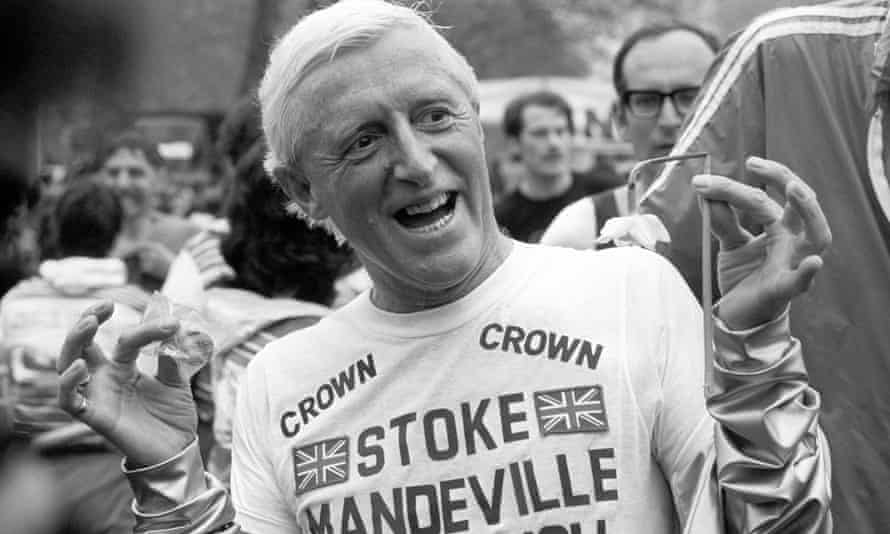
MacKean told Lambert in 2014, during a long interview that he recorded but never broadcast: “The women we spoke to were middle-aged. The fact that they’d been in a school like Duncroft showed that their lives were on a difficult course. Perhaps they weren’t the most appealing interviewees for television. There is, within the mainstream establishment, a dislike of those sorts of people, an official indifference, or they just find them difficult to deal with. I think that’s why the BBC then found it so hard to admit that we were investigating Jimmy Savile, because there was a real embarrassment at admitting that the BBC, like all these other official institutions, had just shrugged its shoulders and turned away from people rather than listened.” The BBC said in a statement: “Savile’s actions were profoundly wrong and we are sorry for the pain caused to his survivors … Today’s BBC is a very different place, where complaints about any form of harassment are considered with the utmost seriousness.”
When MacKean arrived at Newsnight in 2000 after being a presenter on BBC Breakfast News, Jones had been producing investigations for the programme for five years. He noticed that she would get stories from people who didn’t usually talk to journalists. “You could absolutely 100% trust her, and the women [from Duncroft] knew they could trust her too,” he said. “And she was totally unafraid.”
While MacKean was working on Savile, I was working as a freelancer, producing another investigation with her at Newsnight. When I first met her in the office that summer, she looked at my hands, saw they were covered in scratches and asked me if I had a kitten at home. Nobody asked questions like that on first meetings at Newsnight: not personal, not domestic, not about kittens. Newsnight was a tough environment, but MacKean was disarmingly herself. She drew people out. Over the next year I would watch MacKean fight for the Savile story, see how her work went unrecognised, how she was ignored and sidelined at the BBC, and how profoundly that affected her.
“She’d always struck me as a very ordinary journalist,” a former senior news executive told me. “She wasn’t ambitious or sharp-elbowed. She didn’t fill the screen.” I put it to him that MacKean’s talents for listening to sources were one of the qualities that made her extraordinary. He considered this for a moment and said: “Listening wasn’t a quality we gave much credit to back then. It should have been.”
In 2010, Jones and MacKean won the Daniel Pearl award for investigative journalism for their report on Trafigura’s toxic waste dumping in Ivory Coast, co-authored with the Guardian. Paxman told me: “Meirion’s like a dog with a bone. I always took it as read that if Meirion said something was true, it was true. Even though there might be very expensive lawyers for the other side, I always believed him. And he worked with Liz. They were not what you’d call ‘clubbable’. I admired Liz very much. She was a difficult woman, but the best journalists very often are difficult.” Because Jones and MacKean had been given freedom to get on with their work in the past, when their editor questioned whether they had done enough on the Savile story, it was a shock.
On Monday 14 November 2011, cameraman Simon Monk picked up MacKean, Jones and Livingston from a train station in the south of England and drove them to the home of the only one of Savile’s victims they had spoken to who had agreed to record an interview on camera. Monk didn’t know what the story was that he had been booked for. “I’ve often thought about that interview,” he told me. “It stayed with me, you know, just little moments of it. I realised – I’m listening to something that happened to this lady, that I was privy to something that had maybe never been shared before.”
In the car on the way back, the team were quiet at first. Slowly they prompted one another’s responses. They had all believed her. “It was subdued,” Monk said, “and I’m thinking: we’re at the beginning of something. The lid is being prised open on this. I’ve worked there for a long time and seen how people have been dealt with, especially women in the Beeb.” Monk turned on the car radio, and by coincidence the BBC Christmas schedule was being announced – including the Savile tributes. “They’ll have to cancel those now,” someone said.
The team were working to corroborate as many fine details as possible from their collection of quotes by the former Duncroft pupils. Rippon asked Jones and MacKean to confirm claims that the police had investigated Savile. On 25 November, Jones received confirmation that Surrey police had investigated Savile in 2007, and that a file had been passed to the Crown Prosecution Service (CPS). Rippon gave the story a transmission date of 7 December. He wrote it on the Newsnight whiteboard, which meant it was certain to be going on air.
Jones sent a draft version of MacKean’s script to the BBC Impact team, which makes sure important stories are headlined on news bulletins across the network. The Impact department expected a lot of interest, and asked if MacKean could be available for live interviews across all BBC outlets on the day of transmission. Two minutes later, Rippon sent an email to his line manager: “The women are credible and have no motive for speaking to us other than they want the truth to be known … We also think that Sky are chasing the story too so we don’t want to sit on it.”
Rippon received a reply from his manager Stephen Mitchell, the deputy head of news, saying he’d call later. At the 2012 inquiry into the BBC’s conduct over the Newsnight investigation, both said they could not remember whether any subsequent conversation took place. Nick Pollard, chair of the inquiry, wrote in his review: “The inability of both … Mr Rippon and Mr Mitchell to provide any recollection of whether they did or did not speak and, if so, what was said, was frustrating.” (When I approached Stephen Mitchell for comment about this, he said: “I would refer you to the two inquiries carried out into these events and the published outcomes of these, as I recall the reports were clear on how the item was handled.”)
But the next day, Rippon had pulled back. He emailed MacKean and Jones asking them to confirm if it was true that the CPS had dropped the case because of Savile’s old age, as some of the Duncroft women had been told. “That makes it a much better story,” he wrote to Jones and MacKean. “Our sources so far are just the women.”
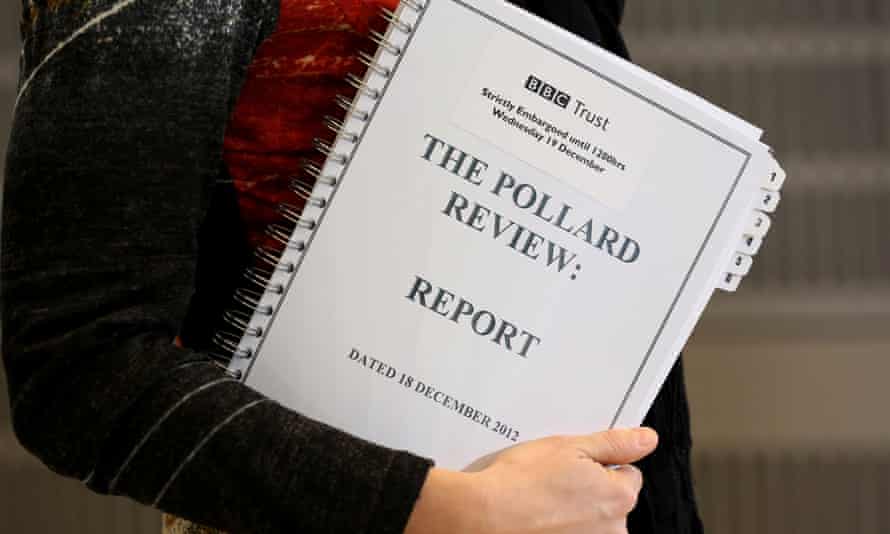
Pollard quoted Rippon’s testimony in his review: “The extent to which we had to rely on the testimony from [the on camera interviewee] was stark. She was the only victim in vision we had and would be the face of our allegations and I remained concerned about how well her testimony would stand up to the scrutiny it would get.”
MacKean, however, was enraged by that phrase “just the women”. She walked into Rippon’s glass-walled office, leaving the door open. “Liz would have been grandstanding,” Jones recalled, “making sure the whole office could hear. He’d have been looking at his toes. Liz, with big arm gestures, was saying: ‘How dare you talk about “just the women”?’ … I don’t remember whether I’d ever seen her bawling out the editor before.”
MacKean asked Rippon to watch their interview with Savile’s victim, but he refused. Pollard wrote in his review: “Mr Rippon told me: ‘I don’t think seeing the interview … seeing something with an eye … gives you any more help in making a judgment about whether something is true or not … I think the kind of concerns that I had, that I was weighing, would not have been swayed by having sat down and watched the interview.’ I think this is a strange thing for a television news journalist and editor to say. Common sense and experience would surely suggest the opposite.”
Rippon wiped the Savile story from the Newsnight whiteboard and told Jones and Mackean to stop work on it until they heard back from the CPS. They didn’t stop. For them, the police investigation was superfluous. They had the story: Savile had been a paedophile and numerous institutions had facilitated his crimes. Jones hired a white Rolls-Royce and filmed it the next day pulling up outside Duncroft.
MacKean and Jones were beginning to realise that Savile’s abuse had taken place on a bigger scale than they’d thought. “By then, we’d also heard rumours about Broadmoor, and quite serious allegations about Stoke Mandeville [hospital],” MacKean told Lambert. “Meirion thought there could be 100 victims … I said, I don’t know, but certainly dozens. And of course we’d both wildly underestimated it, as it turned out. But there was certainly enough there to think, right, a lot of institutions have questions to answer: clearly the BBC, certainly the NHS, and also the Home Office.”
For the next few days, the atmosphere in the Newsnight office was tense. MacKean and Jones quietly continued working on the story as they waited to hear back from the CPS. On 9 December that email came. The CPS said they had dropped the investigation into Savile because of lack of evidence.
“I knew that was the kill,” Jones said.
“This statement [from the CPS about lack of evidence] specifically denied the allegation that the investigation was dropped because of his age,” Rippon later wrote in the Editors’ blog on the BBC website. “I felt it was significant the guidance was included and we had not established any institutional failure and I judged it weakened the story from a Newsnight perspective. I took the decision not to publish.”
The Pollard review recorded that Rippon told them that “the decision to drop the Savile story was his, and his alone”. Pollard found that there was no inappropriate pressure or interference from BBC senior management with the editorial decision not to broadcast the Savile Newsnight programme. MacKean had to ring the women she’d convinced to trust her and tell them the story wasn’t going on air.
“It was crushing and disappointing, but I didn’t accept it,” MacKean told Lambert. “Now she was on a mission to get this story out and to get the truth told, she really was,” MacKean’s wife, Donna Rowlands, told me. There were still a few weeks before Christmas, and MacKean wanted her sources’ voices to be heard before the tributes could air. She leaked the cancellation of her Newsnight investigation to the press. Reporter Miles Goslett got hold of the story and pitched it to seven Fleet Street editors. All turned it down, also on grounds of taste, and because getting into a tussle with the BBC so close to Christmas would cause problems. Even with Savile dead, the story was too much for the British press at that time of year.
On Boxing Day evening, after the regional news and before the family film Madagascar: Escape 2 Africa, 5 million people tuned in to BBC One to watch the actor Shane Richie present the Jim’ll Fix It Christmas special.
In the new year, MacKean and Jones, with more than four decades of service to the BBC between them, gave all their research on Savile to the BBC’s rival, the commercial channel ITV. “Now, obviously that doesn’t make us feel very good as BBC journalists,” MacKean told Lambert. “But given that by then, we really had the feeling that the BBC didn’t want to run this story, the only chance for us to get it out was going to be through someone else.”
On Wednesday 3 October 2012, ITV ran a documentary in their Exposure strand titled The Other Side of Jimmy Savile. Five women, two from Duncroft, spoke about how Savile had sexually assaulted them as underage girls. Not long into the 49-minute programme, the NSPCC helplines began to light up and didn’t stop ringing. And so began a gradual national outpouring of people, mainly women, talking about their own experiences of past sexual abuse, by high-profile figures, or people in their communities, workplaces or families, which many had kept silent about for decades.
The weekend before the Exposure documentary aired, the tabloids had splashed on the Savile allegations. “Sensation as TV legend Jimmy Savile is accused of underage sexual assaults” was the front page of the People. The broadsheets joined in, too, but their focus was specifically on Newsnight’s dropped investigation: “BBC ditched Newsnight investigation into Jimmy Savile,” was the Times’s headline. “BBC denies cover-up over claims Savile targeted underage girls” was the Independent’s.
To tell the Savile story, the BBC had been looking for a case of contemporary institutional failure. By not running it, they had created one. MacKean and Jones were now greeted by cameras and a press mob every time they entered Television Centre. The BBC press office was doing all it could to deflect the story. It put out statements saying that Newsnight had been investigating Surrey police’s Savile investigation, not Savile himself. On 2 October, Peter Rippon published the blog explaining his decision. “Newsnight is not normally interested in celebrity exposé,” he wrote. MacKean was horrified that the former Duncroft pupils, who’d trusted her with painful stories, were being ignored once again by the BBC. And now her and Jones’s work was being publicly undermined. In November, Chris Patten, then chair of the BBC Trust, and George Entwistle, since promoted to director general, were called before a House of Commons select committee to explain what had happened.
Journalists were calling MacKean and Jones, wanting to know their side of the story. Jones ignored the calls at first. MacKean didn’t. MacKean told Lambert: “I remember I had a two-week period of journalists ringing up around the clock, knocking on my door at home, and there was absolutely no one at the BBC I could talk to or get any sort of advice from because we were seen as the enemy within. I remember driving home on Sunday and the phone going, and it was someone from one of the national newspapers to say that a senior member of BBC management had told him that the investigation had been run by a work experience person, and I almost drove off the road.”
The BBC told me that after this year’s investigation into Martin Bashir’s 1995 Panorama interview with Diana, Princess of Wales, which identified profound failures in the application and oversight of editorial values, the BBC Board had commissioned the Serota review “to look at how to further strengthen BBC processes and practices”. The remit of the Serota review was to establish whether the BBC had learned from the mistakes of the past, and to consider whether current practice addressed the challenges that had arisen since 1995. It considered the BBC’s oversight of, and accountability for, editorial decision-making processes; the mechanisms in place for staff and others to raise concerns about editorial issues; the effectiveness of the BBC’s whistleblowing procedures; and the culture within the BBC that supported compliance with the BBC’s editorial values and standards. The Serota review was published in late October, and one of its key findings was that many BBC employees “are apprehensive that speaking up could impact negatively on their career”.
Back in 2012, MacKean and Jones wrote to Rippon, Mitchell and Entwistle trying to correct what they felt were inaccuracies in the BBC’s statements. But the same BBC lines kept appearing in the press. “We were feeling huge pressure from the machine basically saying: go along with what we’re saying,” Jones said. “We were under a lot of scrutiny. There was incredible stress on both of us. And then we decided to do something which meant we’d incur the wrath of management, which was to make the [programme for] Panorama.”
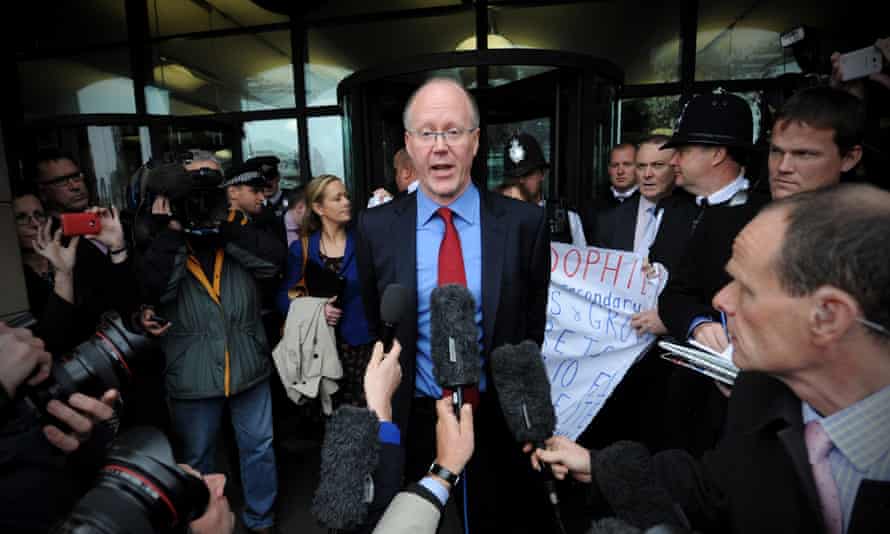
MacKean and Jones had convinced Tom Giles, the editor of Panorama, the BBC’s investigative current affairs programme, to make a programme about what had happened to Newsnight’s Savile investigation. They handed over to Panorama all their emails and paperwork. MacKean and Jones were told by Panorama that a senior manager had said that if they gave interviews to Panorama, they’d lose their jobs.
“We stopped worrying about her BBC career,” Rowlands, MacKean’s wife, told me. “And I’m not just saying that. That was going to fall the way it fell. OK, it fell more disappointingly than we’d hoped. But the important thing was that the women were heard – that was her number one. And then number two, that the truth was told about what the BBC had done, and the cover-up.”
The BBC press office was split. Part of it promoted the Panorama programme that MacKean and Jones were speaking on, while the other put out the BBC’s corporate reaction to the programme. “It was a baroque arrangement,” one former senior BBC manager said.
“It felt weird, like we’d gone beyond the looking-glass,” one former senior Newsnight journalist remembered, “and we didn’t quite know what the rules were. It was very tooth and claw. You could see there were desperate people among management.”
The weekend before the Panorama investigation was broadcast, Jones received a call from a journalist with a “tipoff” that someone from the BBC press office had told him that the reason Newsnight hadn’t run the Savile investigation was because Jones was trying to conceal the fact that his aunt had been complicit in Savile’s abuse. Jones received official permission to deny it from senior news editor Peter Horrocks, who had come over from the World Service to take on editorial oversight of the Panorama film to avoid a conflict of interest, as senior BBC news managers were the subjects of its investigation. On 21 October, the Mail on Sunday ran the story, and noted that the “BBC civil war intensified,” as the BBC press office and a BBC journalist gave out information that entirely opposed each other.
“It’s just massive pressure,” Jones told me, “when it feels like all your bosses, the whole press office, were fighting a war against you. I would have collapsed over it if I had been on my own – and they would have got away with their pack of lies. But it felt like Liz and I were covering each other’s backs. And there was never a feeling that Liz would crack. She was rock solid on this.”
On Monday 22 October, the Panorama film, Jimmy Savile: What the BBC Knew, was broadcast on BBC One at 10.35pm. On the programme, MacKean said the BBC had been “misleading” the public. Viewers watched as the BBC seemed to be criticising itself. Meanwhile, MacKean amplified her criticisms of what she saw as the BBC’s deafness to the victims of past sexual abuse. She said: “[The] women collectively deserved to be heard, and weren’t heard, and that was a failure. We’d convinced them to talk to us, we’d believed them, and we let them down.”
Rippon stepped down as the Newsnight editor a few hours before the Panorama film went out. (Pollard would later write in his review that Rippon was already “becoming something of a ‘fall guy’”.) The BBC put out a statement saying that the BBC Newsnight investigation had not started out by looking at Surrey police. It was a small admission, but on that point the record had been corrected.
“We were both pretty smashed up after all that,” Jones told me. He remained on a short-term contract with Panorama while MacKean returned to Newsnight alone. “Overnight my relationship with the BBC changed,” MacKean told Lambert. “All of a sudden I was persona non grata, and people who knew me wouldn’t talk to me. I’d sort of sit down and all the usual chit-chat of an office seemed to just fall away.”
MacKean felt that for many in management, and colleagues who were fearful of management, she was now tainted. “It became a world where people were disappearing – you didn’t know if all your bosses were going to be sacked,” a former senior Newsnight journalist told me. He talked about the awkwardness of bumping into MacKean and Jones at the time: “You didn’t know what to say. You didn’t know what they wanted, or how far they wanted to take this.”
MacKean was hurt. “She wasn’t a rebel. So to suddenly be so outside the tent was quite hard,” Rowlands explained. ‘She was so determined that all the truth would come out and all the people who’d lied would be held accountable. But it suddenly put her in a position that wasn’t comfortable for her. Because really, I mean, it sounds corny, but she was a team player. You know she’d always liked the collegiate nature of the BBC.” Her former colleague Jackie Long told me: “It was the one period in the time I knew her that she sounded at all fragile. That inner confidence was rocked.”
Dee Coles was abused by Savile in his campervan when she was 14, while on holiday with her mother in Jersey. When she saw that the Exposure documentary was coming out, she noticed scepticism in some of the papers, and worried that the women coming forward wouldn’t be believed. She wrote to the independent news production company, ITN, and in early October 2012 spoke about her own abuse by Savile on ITV news.
She felt MacKean and Jones’s intervention on Panorama was crucial for building victims’ confidence if they were going to come forward. “Nobody else was fighting that particular corner.” Coles said she saw interviews with people who had been at the BBC when Savile was alive saying they hadn’t seen anything, or there was nothing they could have done. “And so it became massive that someone with a journalistic background who had nothing to gain and everything to lose said [that Savile abused children]. It underpinned the whole thing going forward, because otherwise it would just be a bunch of women saying ‘me too’ before it was hash-tagged. It was so courageous.”
“A lot of how the BBC behaved was as other institutions behaved,” MacKean told Lambert, “whether the courts, the police and NHS hospitals, even within families, people making the complaints are sidelined. They’re disbelieved. And in that way, the BBC behaved exactly as other institutions did.”
A mental shift was now taking place. In a rushed attempt to catch up, Newsnight tried to do a film about another sexual abuse case involving a wealthy industrialist, based on victim testimony. But after the accuser said he got the wrong person, the BBC issued an apology. On 11 November 2012, Entwistle, the BBC director general, resigned.
The Pollard review was commissioned by the BBC to look into “the management by the BBC of a Newsnight investigation relating to allegations of sexual abuse of children by Jimmy Savile”. Pollard, a journalist at Sky, took the chair on 16 October 2012 and collected testimony from all the BBC players involved. On 18 December 2012, he released his findings.
MacKean and Jones turned up at the door to Pollard’s press conference in Broadcasting House. A press officer stopped them from entering. “We were shocked,” Jones said. “But we couldn’t do anything about it.” MacKean and Jones stood together at a television set in another part of the building and watched the press conference, live on the news, together. Pollard told the room: “The Newsnight investigators had got the story right. They had found clear and compelling evidence that Jimmy Savile was a paedophile. The decision by their editor to drop the original investigation was clearly flawed, though I believe it was done in good faith.”
After being barred from Pollard’s press conference, MacKean and Jones decided to address the members of the media who were waiting on the forecourt outside Broadcasting House. A BBC press officer told them that their statements needed to be approved first by the acting head of BBC News. MacKean turned and said: “I think you’ll find they won’t.” She and Jones walked out through the revolving doors to the microphones and stood in front of the flashing cameras. MacKean said: “I think the decision to drop our story was a breach of our duty to the women who trusted us to reveal that Jimmy Savile was a paedophile … Our editor didn’t watch the interview with our main witness. Nick Pollard did, and found her credible and compelling, as did we … I welcome the recommendation that the BBC should trust its journalists.”
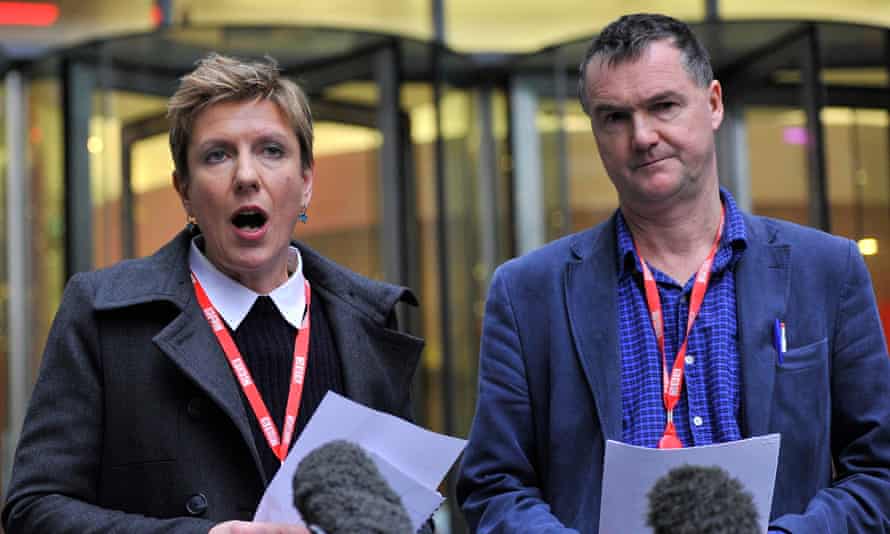
MacKean and Jones were both invited to individual meetings with the then-acting (and now current) director general of the BBC, Tim Davie. Jones said: “We were both half-expecting that he might say: ‘We’ve got new hands on the tiller, it’s all going to change. Congratulations for going after that really important story. And – I’m sorry.’ But we got the opposite of that. It was new face, same suit.”
In a statement, the BBC said: “In response to Pollard’s findings, BBC management dealt with the issues appropriately at the time setting out a number of actions including the replacement of the senior editorial team at Newsnight; the introduction of regular reports from the Director-General to the BBC Management board about the highest risk programmes and investigations across the BBC.”
Newsnight moved into Broadcasting House in central London in mid-October 2012. The old Television Centre in White City had been sold, and would later be rebuilt into a complex of high-end apartments and restaurants. MacKean was asked to stay behind, sitting in Paxman’s old chair, ready to present the programme should the satellite link fail in the new studio. MacKean called it the “Miss Havisham” role – she’d done it before when presenters were on location. But as she sat there alone in the empty studio, an understudy, it was her story that made the headlines. The Metropolitan police had launched Operation Yewtree on 9 October to investigate Savile and other establishment figures, and 450 people would come forward to give testimony about being abused by Savile. The NSPCC said that in November and December 2012 it intervened to protect 800 more children than in a similar period in previous years. And since its establishment in 2013, the child sexual abuse review panel has sent 78% of cases referred to them to be reopened by the police or CPS because of flaws in the original investigations.
MacKean and Jones had reframed the Savile story. It could no longer be dismissed as a celebrity sex exposé. Now the victims were at the centre. From that moment on, when women spoke out about past sexual abuse, the media, the police and the courts were prepared to listen.
“I think the scandal really did change things,” a senior journalist told me. “In our world, the idea that you wouldn’t run a story where you interviewed victims is now very unusual. Certainly if you have lots and lots of adult women saying something like that – you would run that story now. Weinstein was done partly by the New Yorker and the New York Times – the most heavyweight outlets in the world now do that kind of story.”
MacKean left the BBC in 2013. She went on to make award-winning documentaries for Channel 4’s Dispatches, but she missed the daily grind of the news and her world at the BBC. In 2017, she and her friend and former Newsnight Northern Ireland producer Michael Hughes were watching the BBC’s general election coverage together. “Liz was sad about it,” Hughes said. She wished she was mucking in, reporting the results with her colleagues on election night. “She always had her head held high, but I think she was sad that the Beeb hadn’t fought harder to keep her.” In August 2017, at the age of 52, MacKean had a stroke and died.
I had seen how MacKean’s sense of justice, courage and incisiveness had set off a chain of events that helped to bring justice, and reduce isolation, shame and repression for countless women across the UK and beyond. When I miss Liz’s friendship, I look online for an account of what she helped to achieve through her work on Savile, but I can never find one. So here it is.
… we have a small favour to ask. Tens of millions have placed their trust in the Guardian’s high-impact journalism since we started publishing 200 years ago, turning to us in moments of crisis, uncertainty, solidarity and hope. More than 1.5 million readers, from 180 countries, have recently taken the step to support us financially – keeping us open to all, and fiercely independent.
With no shareholders or billionaire owner, we can set our own agenda and provide trustworthy journalism that’s free from commercial and political influence, offering a counterweight to the spread of misinformation. When it’s never mattered more, we can investigate and challenge without fear or favour.
Unlike many others, Guardian journalism is available for everyone to read, regardless of what they can afford to pay. We do this because we believe in information equality. Greater numbers of people can keep track of global events, understand their impact on people and communities, and become inspired to take meaningful action.
We aim to offer readers a comprehensive, international perspective on critical events shaping our world – from the Black Lives Matter movement, to the new American administration, Brexit, and the world's slow emergence from a global pandemic. We are committed to upholding our reputation for urgent, powerful reporting on the climate emergency, and made the decision to reject advertising from fossil fuel companies, divest from the oil and gas industries, and set a course to achieve net zero emissions by 2030.
If there were ever a time to join us, it is now. Every contribution, however big or small, powers our journalism and sustains our future. Support the Guardian from as little as £1 – it only takes a minute. If you can, please consider supporting us with a regular amount each month. Thank you.
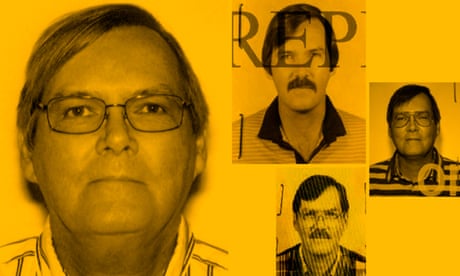
— be sure to mark your calendars!
ReplyDeleteHere's our Broadcasting Schedule
(Be sure to save & share this)
Episode 1 11/10
"The Sordid History of the Cancer Cartel: A Century of Suppression & Censorship"
Episode 2 11/11
"Why You Get Cancer: Do You Have "Bad Genes"? Do Vaccines Cause Cancer?"
Episode 3 11/12
"Affordable Treatments, The Anti-Cancer Diet, Healing Herbs & "Defensive Eating"
Episode 4 11/13
"Heal Your Heart & Beat Cancer with Laughter, Music, Homeopathy, Frequency & Light"
Episode 5 11/14
"Cancer-Fighting Plants, Herbs & Spices from God's Pharmacy & Nature’s Medicine Chest"
Episode 6 11/15
"How to Detox, Healing w/ Heat, Hidden Hazards, Halogens & Hormone-Driven Cancer"
Episode 7 11/16
"Juicing Essentials; Ketosis Facts & Fictions; The Importance of Oxygen & Pet Cancer ABC’s"
Episode 8 11/17
"Nature's Liquid Elixirs; Cancer Diagnostics, Oral Health, Essential Oils & Healing Skin Cancer"
Episode